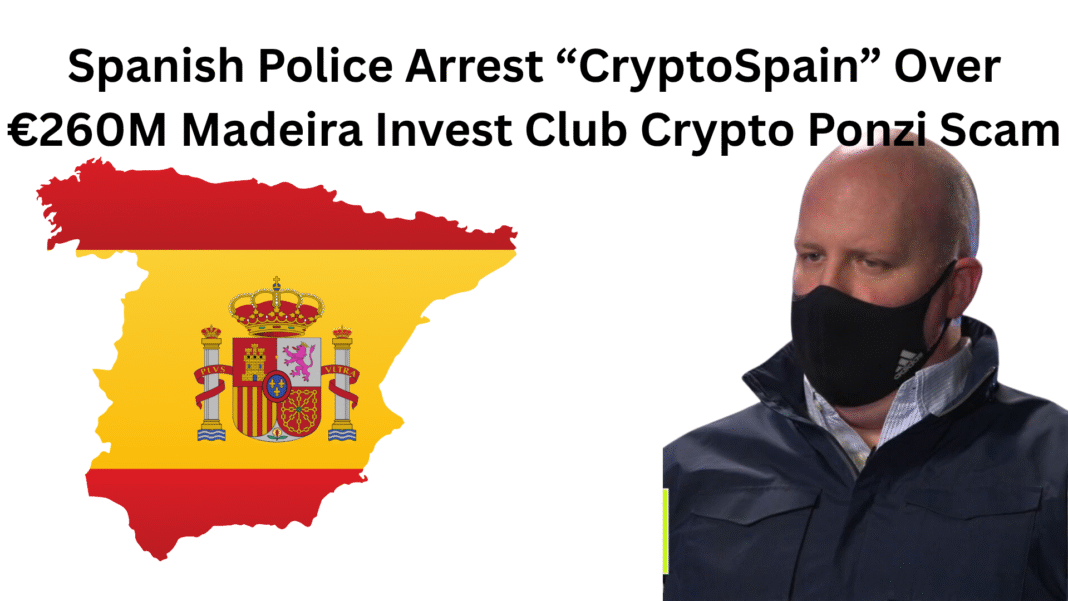A man was detained by Spanish police on suspicion of masterminding an alleged worldwide investment fraud worth 260 million euros ($300 million) that promised profits on everything from Bitcoin to gold and opulent boats.
The Madeira Invest Club, which started operations in early 2023 and advertised itself as a private investment company, was reportedly run by the suspect, named as A.R. and known online as “CryptoSpain,” according to the Ministry of Interior.
Over 3000 victims
The government claims that by guaranteeing profits on contracts linked to digital art, luxury cars, whiskey, real estate, and cryptocurrency, the plan drew in more than 3,000 victims.
Also Read: Spain’s University Of The Hespérides Debuts Fully Online Master’s Program In Bitcoin
Authorities claim that no actual economic activity of investment occurred despite the pitch’s promises of returns and repurchase assurances. Rather, the government claims that the club functioned as a Ponzi scheme, paying former members with money from new investors.
As the enterprise grew, it created a sophisticated network of bank accounts and shell corporations in at least ten nations, including Portugal, the United States, the United Kingdom, Malaysia, and Hong Kong.
Europol and law enforcement organisations from the United States, Singapore, Malaysia, Thailand, and other countries participated in the investigation, which was dubbed Operation PONEI.
Spain Crypto Developments
There have been a lot of advances in the cryptocurrency field in Spain. In order to supply its institutional-grade custody system for digital assets, Ripple has partnered with BBVA, the biggest bank in Spain.
Customers in Spain may purchase, trade, and retain bitcoin and ether thanks to the agreement, which supports BBVA’s new retail cryptocurrency business. With Ripple at the forefront of this expansion, these actions show Spain as a significant new European extension for the adoption of regulated digital assets.
Additionally, a rumour claims that Binance is collaborating with Spain’s BBVA to allow users to keep assets outside of the cryptocurrency exchange.
BBVA would become an independent custodian as a result of the change. After increased regulatory pressure and FTX’s collapse in 2022, it seeks to reassure users.
These are just a few of the many developments that are taking place in Spain when it comes to cryptocurrency regulations and activities. Ever since rules and regulations have tightened up in the space, more traditional banking institutions are coming for to interact and associate with the digital assets space.
Ponzi schemes
A Chinese guy named Liang Ai-Bing was recently detained by Thai officials on suspicion of operating a $31 million cryptocurrency Ponzi scam at an opulent Bangkok residence in October.
Additionally, according to court documents, Ramil Ventura Palafox, 60, entered a guilty plea in September to charges of wire fraud and money laundering for operating a worldwide Ponzi scheme that stole funds from over 90,000 participants.
Palafox, a dual citizen of the United States and the Philippines, is accused by the prosecution of running Praetorian Group International and making false claims about the company’s large-scale bitcoin trading while promising investors “daily returns of 0.5 to 3%.”
Also Read: OKX Spain Debuts Regulated Crypto Exchange Under EU’s MiCA Framework


